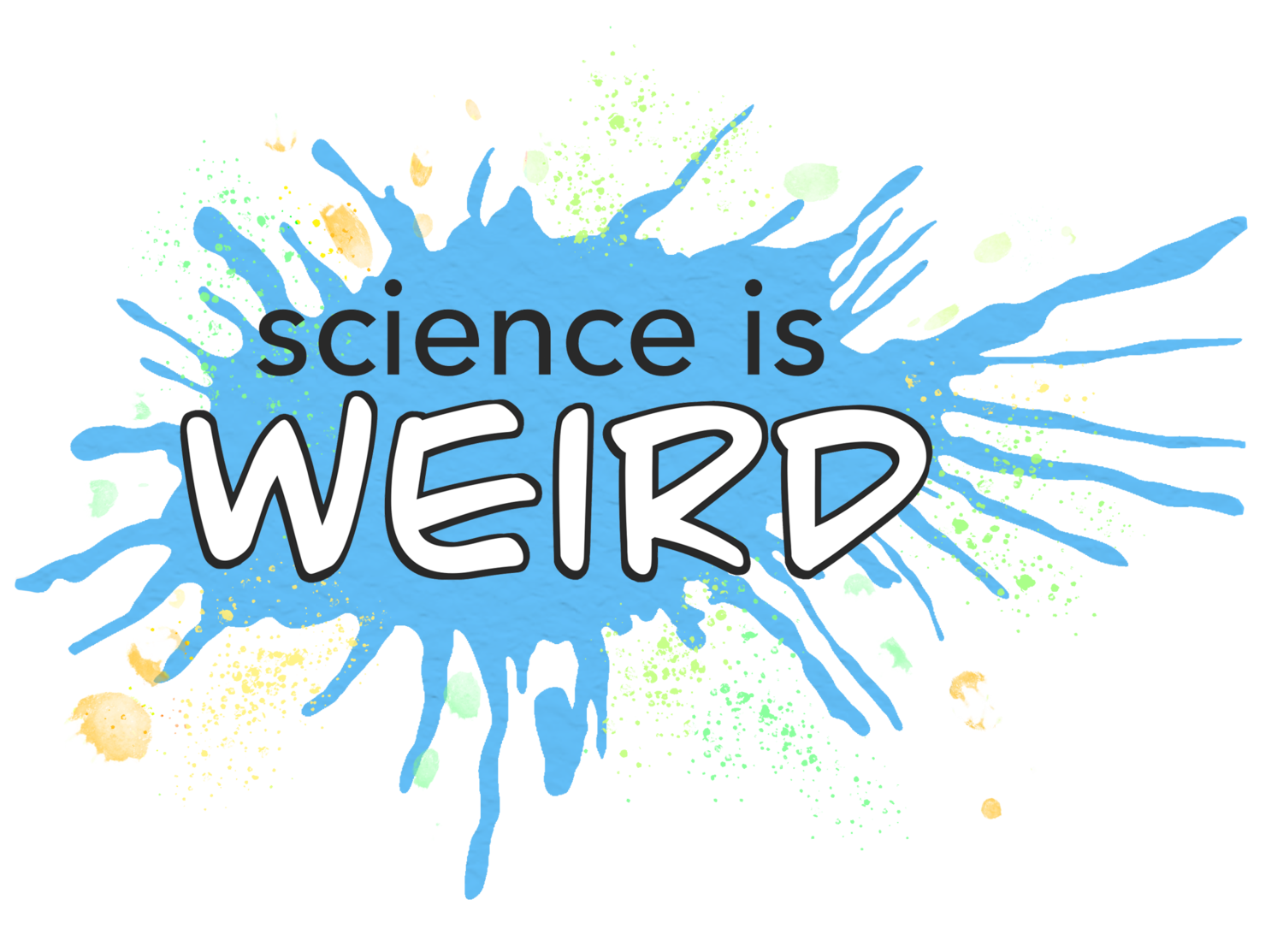Big Course: Year 2
The expedition continues
Welcome to Year 2 of our Big Course! We’ll continue our adventure through the world, deepening the fundamentals we started to build in Year 1.
Each lesson is a riddle, woven through with experiments, pictures, and stories… and when you crack it, you’ll see the world for the complex puzzle it actually is.
These are edited recordings of live lessons we gave in 2024–25. (We recommend you watch these before starting Year 3.)
From our inbox
“My 11-year-old is dyslexic and maybe only at a second grade level for reading and writing.... he has been bingeing your classes and, to my surprise, doing all of the notes and drawings!...
He told me this morning, ‘I like writing in my notebook now’! I am utterly shocked. He’s been sooo resistant to writing ANYTHING. I thought I was just signing him up for a science class. Guess the joke’s on me!”
The six topics
Topic 7:
Light is Weird
In which we poke the Universe, and hear it yelp
You’ll trace the steps of the people who realized that everything we see… isn’t everything there is.
You’ll learn the stories of Newton, Herschel, and Maxwell. You’ll see the shape of light with your own eyes, hear the discovery of radio waves, begin to see why some physicists throw up their hands about the Universe… and raise a big question: what the ever-loving heck is going on?
-
Particle, or wave?
Along the way you'll learn about a big fight in the Scientific Revolution, and begin to look twice at everything you see.
-
How many colors can you actually see?
Along the way you'll learn about how an engineer lost a candy bar, a honest mistake with a prism in the sunlight, and what caused one woman to yell "I have seen my own death!"
-
Could you walk through two doors at once?
Along the way you'll understand the famous double-slit experiment... and what it might mean.
-
What's the most dangerous color of light?
Lasers and x-rays and cell phones, oh my! Along the way you'll learn how light interacts with matter, and what wavelengths do.
-
Just how fast is light?
Along the way you'll... oh, honestly, this is just too hard to describe here. Get ready for a head-scratcher of a lesson, where we glimpse a little of what's really going on with reality.
Topic 8:
Fire is Weird
In which we see that something mysterious is very VERY mysterious
You’ll understand the oddity of molecules — and how the whole history of the world is written into them. You’ll hear the stories of Antoine Lavoisier and Joseph Priestley. You’ll shrink down to see what’s really happening in combustion, glimpse the secret shape of every flame, and understand what you really are.
-
How much does a fire weigh?
We'll go back in time to see where our ideas of "mass" come from... and the simple experiment that proved that "fire" is not what it seems.
-
Where does the candle go?
To understand this, we'll shrink down to Nanoworld and spy a very violent dance.
-
Why is fire bright?
Dissect a flame with us, and find out its secret parts!
-
Why is fire hot?
What do all things that burn have in common? And what's really going on in a molecule?
-
Why is a blanket warm?
Honestly, the "revelation" at the end of this one is so much fun that we'll hold back from saying anything else right now.
Topic 9:
Eyes are Weird
In which we spy how your mind meets the world
Come and see how your see-ers see! You’ll hear the stories of how Ibn al-Haytham became the Father of Optics, and how Charles Darwin fended off a critical challenge. You’ll learn why you can trust what you see… and when you probably shouldn’t.
-
What color is your eye?
You see with your eyes... but almost no one ever really sees them. In this lesson, you'll come to understand the parts of your eye through the weird phenomena they each produce — blind spots and blue sprites and floaters.
-
How do you see?
You'll shrink down to Milliworld and Microworld to understand how your retina actually works... and why that might make you doubt your own eyes.
-
What animal had the first eye?
Body parts always come from somewhere! This week we'll dive into an accusation made against Darwin's theory of natural selection: "what good is half an eye?" Through this, we'll understand the true history of the eyeball.
-
What color is a banana?
Color theory is hard: and even harder than you think, if you think you know color theory. We'll unpeel color to see if raspberries are really pink, if limes are really green, and what color a banana is.
-
How do optical illusions work?
What do optical illusions tell us about what we really see around us? Why do we fall for these, and what color is the dress, really?
Topic 10:
Volcanos are Weird
In which we stick our hands into the Earth
Volcanos are a portal to the 99.4% of Earth we never get to see. Everyone feels they intuitively understand them… but intuitions lie. In this course you’ll learn what powers them, how to survive them, and how they could kill or save us all.
-
What's a volcano?
A volcano is less of an object than a process — and once you understand that, you'll understand almost everything you need to know about them to stay alive.
-
What can a volcano tell us about the Earth?
Everyone has an image in their mind for the layers of the Earth: crust, mantle, core. Except... maybe that's not what's really going on at all.
-
Why is a volcano so hot?
To understand, you'll need to go deep into the Earth, and discover some quite fearful things.
-
Why is the Pacific Ocean surrounded by volcanos?
Everyone learns words like "subduction", "plate tectonics", and so on... but what do those all really mean? What's the simple, horrifying story of the Pacific?
-
Could a volcano save your life?
They're powerful, right? What if we could make that power work for us, to solve some pressing problems?
Topic 11:
Apples are Weird
In which we meet the organs sitting on your counter
You’ll open your eyes to the utter weirdness of the world’s third-favorite fruit.* You’ll hear the stories of the ancient Greek Theophrastus, who pushed forward our understanding of what fruit is. You’ll find out what’s 180º wrong with every picture you’ve ever seen of an apple. You’ll learn how (and why) to put an apple into a coma. And most importantly, you’ll wrestle with one of philosophy’s most profound questions: what is it like to be an apple?
* People eat more bananas than any other fruit, followed by watermelons. Who knew?!
-
What does an apple know?
Are they alive? How smart are they? What are they able to do, and how do they do it?
We all treat apples as objects... we'll kick off this topic by looking into what they think about us.
-
Why do apples have seeds?
Where did they get them from? What was an apple before it was an apple?
-
Why is an apple sweet?
Is it because they love us, and want us to be happy? Or is something stranger going on — do they want to be eaten? Can they feel pain?
-
How old is your Granny Smith apple?
Where do these "varieties" of apples come from? How do the genetics of apple trees work?
-
What was the great-great-grandma of an apple?
How do apples connect up with the rest of plant life? In this lesson, you'll get an picture of the "family tree" of all plants.
Topic 12:
Cats are Weird
In which we look at a very familiar animal, and see the whole Universe staring back
Cats are flipping adorable — but all our 😍-ing can get in the way of seeing just how incredible they actually are. We’ll treat cats as a window into evolution, ecosystems, and human history. We’ll learn anatomy to find kinship. We’ll even wade into one of the hottest fights in the animal-lover community… and find a way out.
-
What's a cat?
We'll begin by looking very carefully at the parts of a cat, and deciphering what, to the rest of Nature, a cat actually is.
-
What were a cat's great-grandmothers?
Here, we'll trace the lineage of cats back to the first mammal, understanding how your cat is your cousin. Then we'll trace it back further to understand what we actually mean when we say "mammal".
-
How did cats become pets?
In this lesson we'll learn about the human history of cats — where they came from originally, how they came to live in our homes, and how they had to change to make that happen.
-
What's the best thing cats have done for us?
What's the prehistory of humans and cats? You'll learn about the all-important relationship cats and humans had when we were still cavemen.
-
What's the big story of cats?
This week you'll learn what the most important fact about cats is, dive into a huge ethical controversy... and get some help in learning how to think through it.
Watch an open house
Year 2 FAQ
-
Probably! We design our lessons to link up together. That said, you could do the live lessons of this year AND blast through Year 1's recordings on your own.
-
In Year 1, we aimed for ages 8–15; in Year 2, we're aiming for 9–16.
But we have some kids older and younger than that, too. (Sometimes adults sign up for themselves!)
-
Usually a bit more than 90 minutes in total, broken up into 20–30 minute chunks.
-
For as long as your subscription lasts.
-
Usually just a notebook — we recommended a dotted one, like this or this. We'll let you know when you'll need additional materials (usually it's stuff lying around the house).
-
Actually, these are the same thing as the live webinar — just lightly edited for your viewing pleasure.
-
Quite a few: see our Discounts page.
-
We can try! See our “help us become a vendor” page.
-
Loads of people! See “Why You Might Hate Us.” (But remember our Ridiculous Guarantee.)
-
Feel free to use it with everyone in your family! (You don’t need to purchase it multiple times.)








